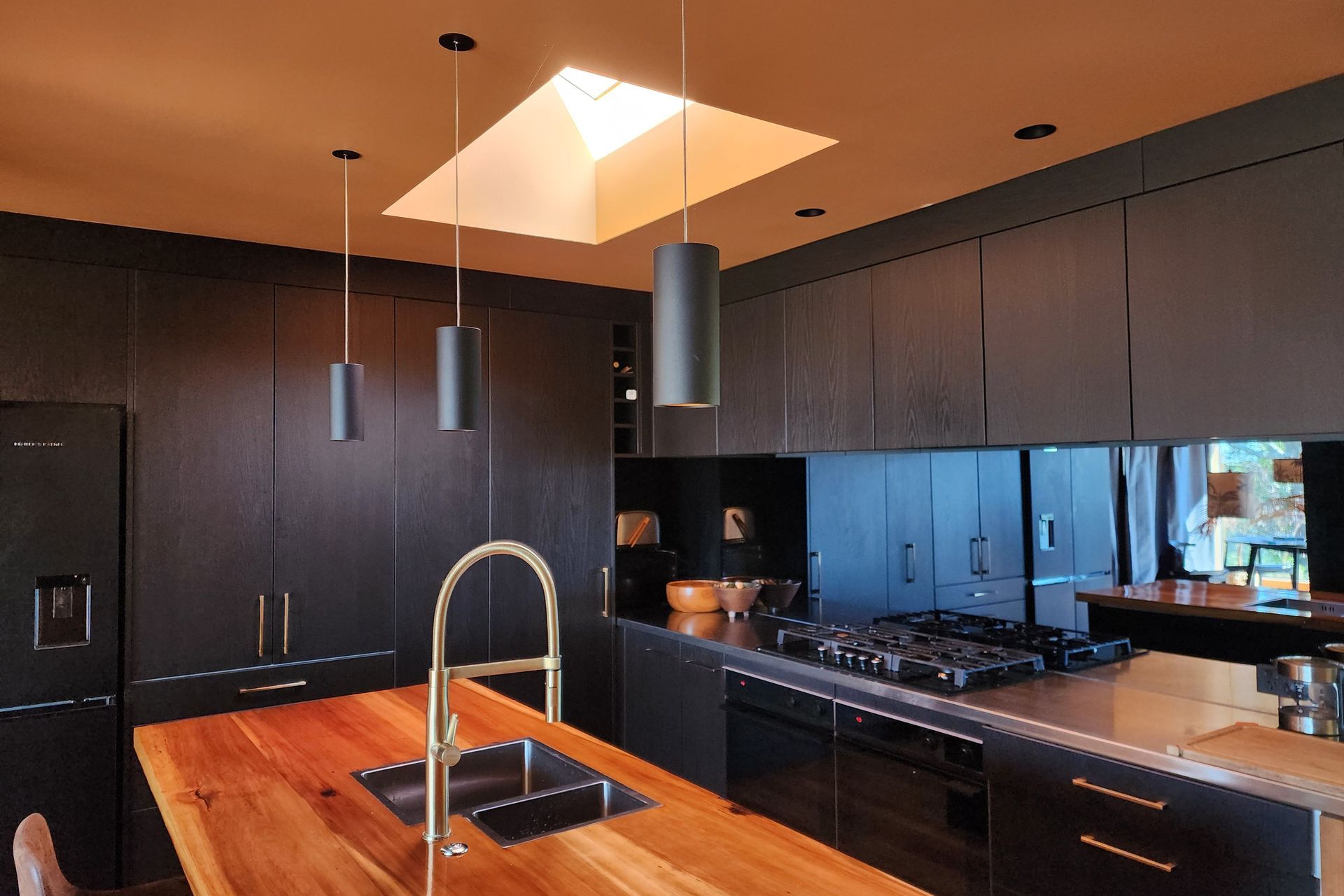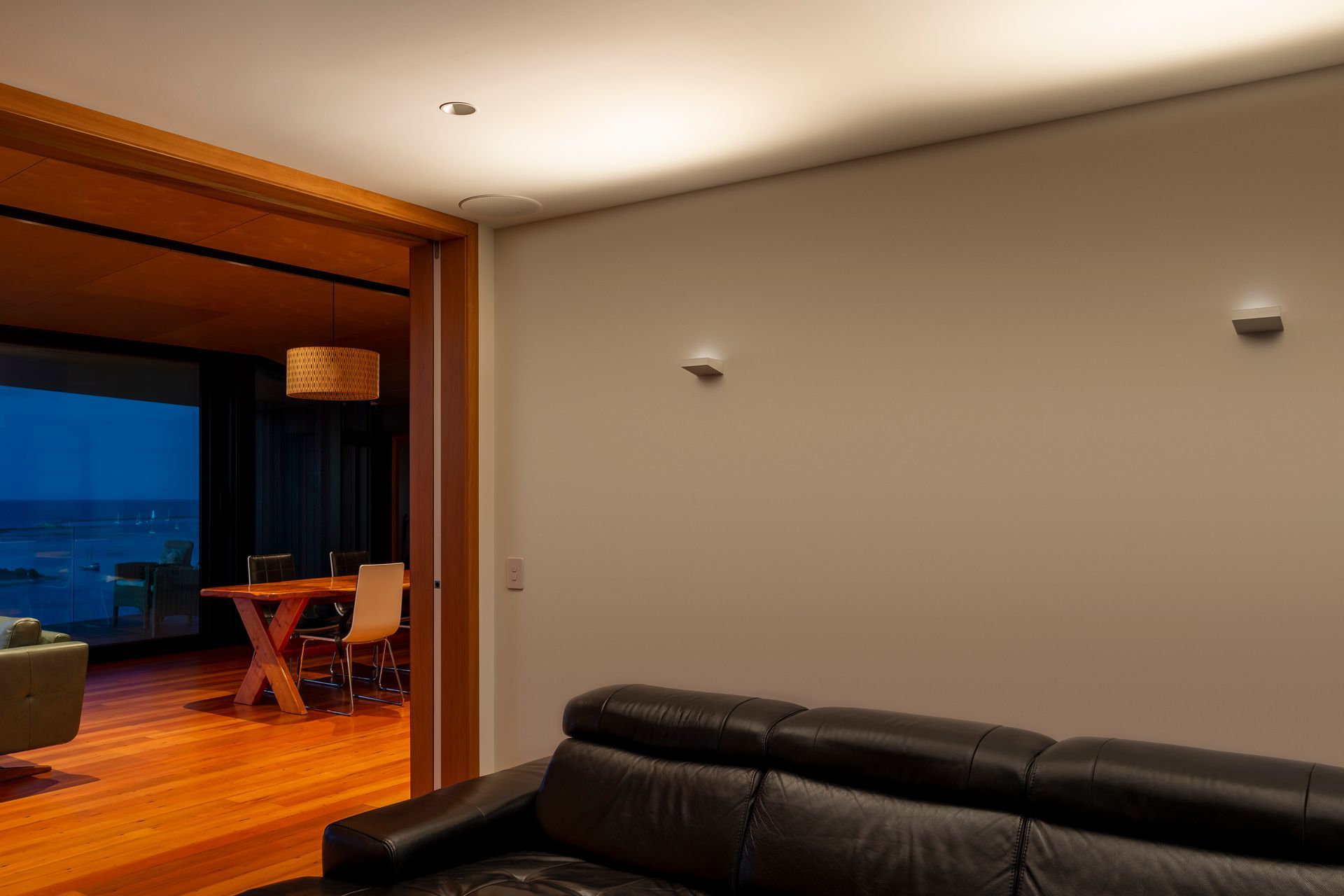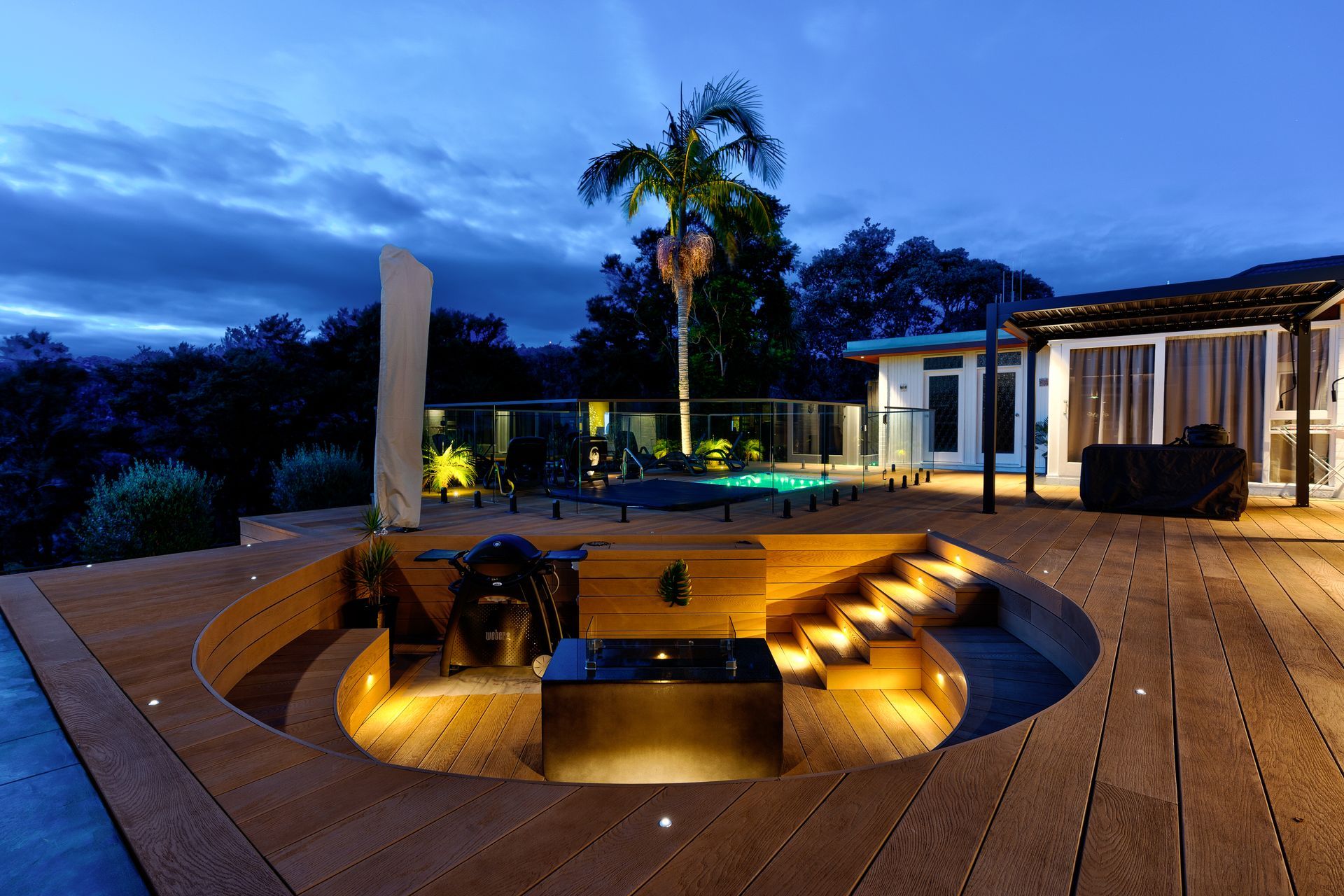Create cosy ambience and functional spaces with home lighting tips from the experts
Written by
23 January 2024
•
5 min read

To create a delicious meal, you need the right balance of ingredients. Too much of one thing, and you’ll overpower the other elements; use too few and you’ll have a bland meal. According to lighting experts, Switch Lighting, the same goes for lighting your home. By incorporating a variety of lighting styles, layers, and locations, you can easily create a lighting plan that is both functional and beautiful.
Switch Lighting was established in 2009, and their team has been designing and manufacturing architectural lighting in their Nelson factory ever since. With over a decade of experience catering to the discerning needs of design professionals, electricians, and homeowners, their team has a wealth of knowledge on home lighting design. ArchiPro caught up with Switch Lighting's Co-Founder and Managing Director, Gerard Woods, for some expert advice on creating a cosy ambience and functional, well-lit spaces in the home.
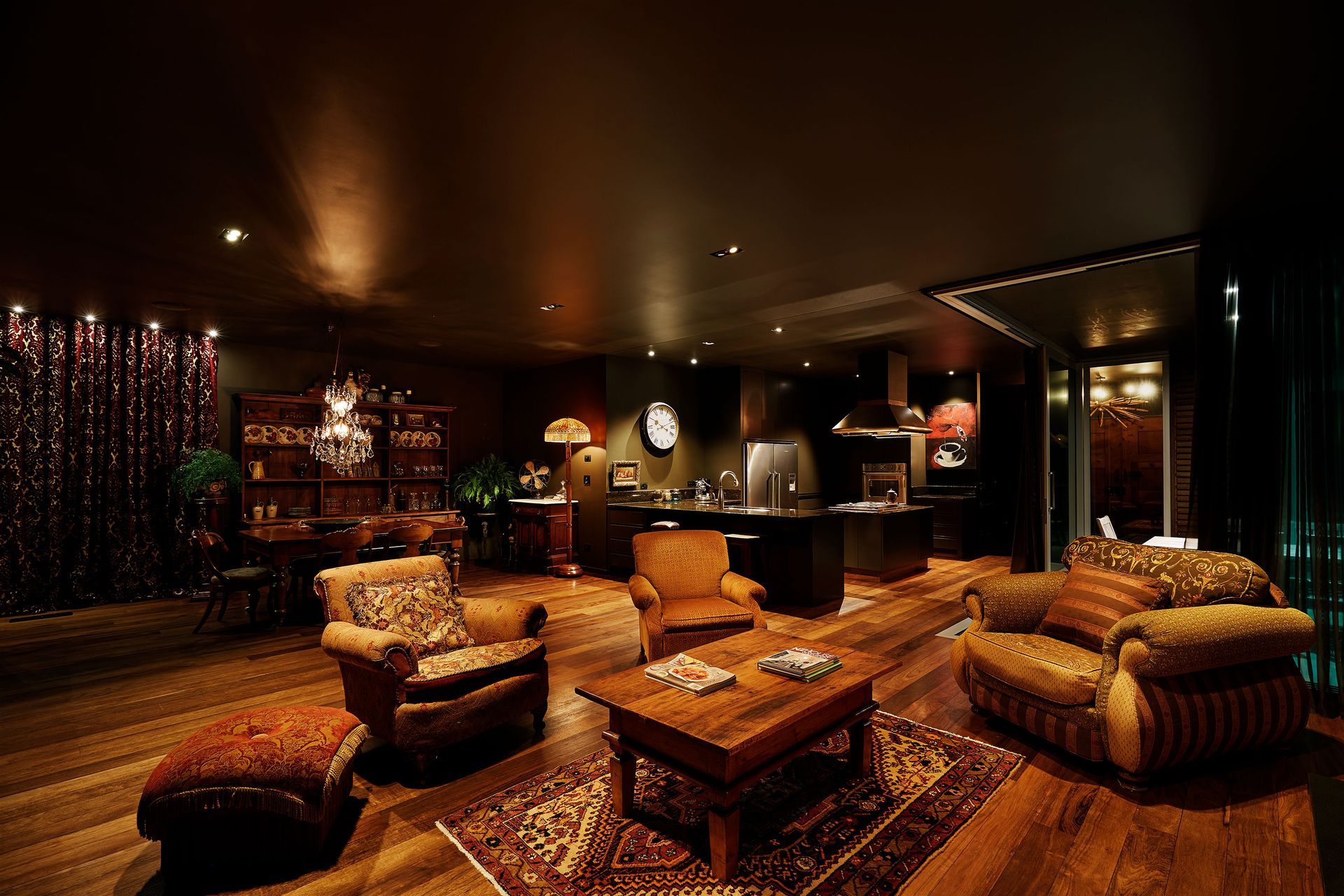
Getting started on your home lighting plan
When creating your home lighting plan, it's important to understand the different lighting types and how each can be used in the home. These include natural lighting, ambient lighting, task lighting, and accent lighting. While everyone is familiar with natural light, it is often overlooked as a light source in home lighting plans. By strategically placing windows to harness the sunlight available on your site, you can reduce the number of lights needed during the day and save on power bills.
Ambient lighting refers to fixtures that provide overall lighting for a space. This could be anything from ceiling-mounted or recessed fixtures to wall sconces or floor-lamps that provide enough light for an entire room. Task lighting covers direct light sources used to illuminate a certain area, like a kitchen bench or office desk. Similarly, accent lighting refers to direct light used to highlight elements in the home, like artwork or architectural features.
"We recommend implementing a layered lighting strategy that seamlessly incorporates natural, ambient, task, and accent lighting," Woods explains. To do this, start by defining the purpose of each room and the activities that will take place there. This will give you a good idea of the lighting types you will need to ensure functionality. With the purpose of the room defined, you can also make decisions around colour temperature, smart lighting, and dimmer switches.
The design style of your home is also a key consideration, Woods says. Light fixtures provide both illumination and aesthetic value, so selecting styles that complement the colours, textures, and sculptural forms in your home will add to the overall ambience of the space.
With sustainability top of mind for designers and homeowners alike, selecting energy efficient lighting is a great way to add value to your home. "Choose energy-efficient lights, like Switch Lighting LED luminaires, as they offer both longevity and lower energy consumption. Sensors and smart lighting controls are another way to enhance efficiency, as they automatically adjust light levels based on occupancy and natural light availability," Woods explains. "Thoughtful fixture placement and design can also help you optimise available natural light, minimising the need for artificial lighting during daylight hours."
Room by room lighting tips
"Choosing the right lighting for each room in the home involves a thoughtful consideration of the activities that take place in each space, with the overall goal of enhancing the home environment and reducing eye strain," Woods says. "Entryways set the tone for the home, so we often recommend ambient lighting and accent lighting to highlight any artwork or architectural elements."
In the living room, Woods suggests a combination of ambient and accent lighting, with an attractive feature pendant and layered directional downlighting, supported by additional strategically placed lamps, to create a cosy ambience. Kitchens require bright task lighting to ensure visibility during food preparation, with support from ambient lighting for overall room illumination.
“Pendants are a functional and stylish addition over a kitchen bench. With a unique slim rose design, the ZELA décor Pendant from Switch Lighting adds sophistication and elegance.”
Bright task lighting is important in bathrooms, particularly around sinks and mirrors. For relaxation, Woods suggests dimmable or directional lighting. "Our colour tunable luminaires range from an impressive 1800K to 4000K. When dimmed at 1800K they mimic the soft glow of candlelight, which is perfect for a soothing bath after a long day."
Bedrooms also require soft ambient lighting to create a relaxing environment for sleep. Choosing dimmable or colour-tunable luminaires, bedside table lamps or pendants can offer both functional light for reading and cosy light for winding down.
"Indirect lighting in bedrooms and media rooms, using lights like our Cirro Ceiling Washer, is a recent trend. This method directs light upwards and across surfaces or ceilings to create a soft, diffused glow, completely eliminating glare."
While not technically a room, outdoor spaces greatly benefit from thoughtful lighting, too. "With the right outdoor lighting, you can transform your outdoor space into a relaxing paradise when the sun sets," Woods says. "Balance is key; avoid excessive brightness that may cause discomfort or light pollution, and consider using amber light as it helps reduce disruption to natural ecosystems." Similar to indoor spaces, Woods suggests layering light sources outside to create a dynamic and inviting atmosphere that highlights the architecture and surrounding landscape.
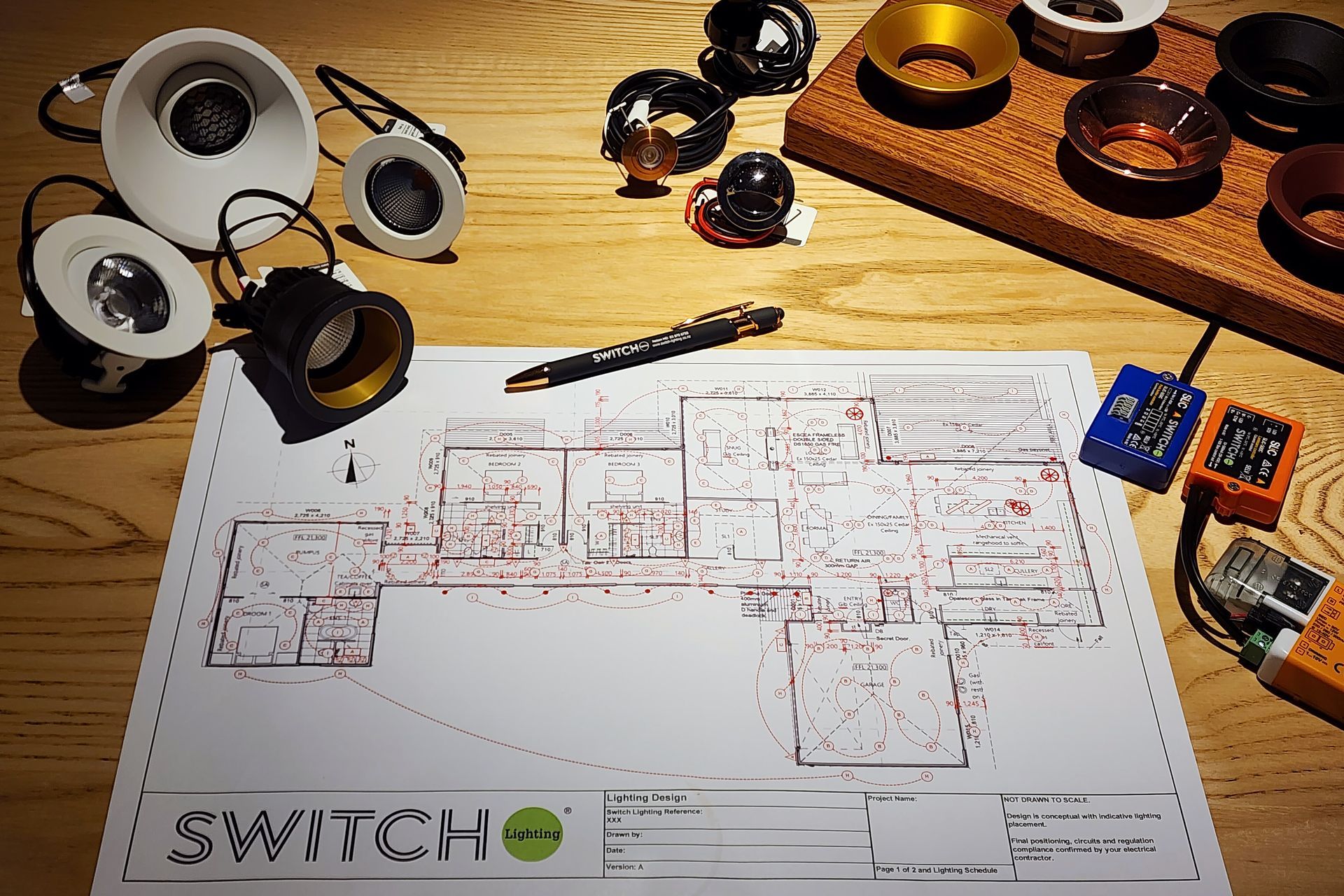
"Lighting preferences are personal to each individual, so having the support of a professional lighting consultant can help you achieve a bespoke and elegant solution for your home," Woods says, highly recommending a visit to one of the Switch Lighting showrooms located across the country.
“Being able to touch and feel the physical luminaire, and then experience how the product illuminates a space, is invaluable in the lighting exploration journey. And, if you're looking for expert advice with a complimentary lighting design, our team of Lighting Consultants are available to help.”
Learn more about Switch Lighting.
